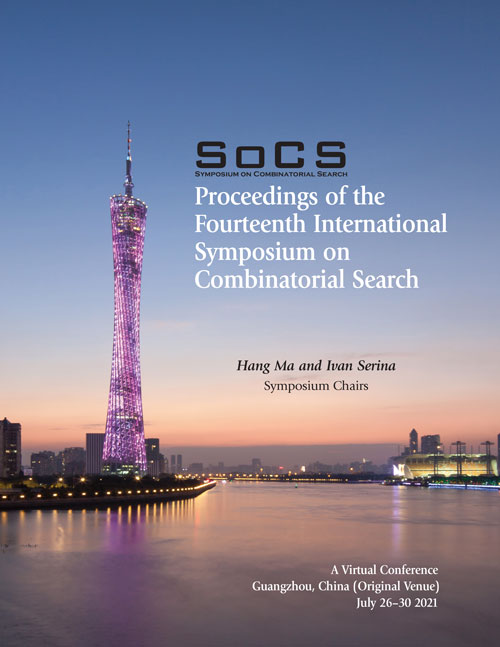Fast Bounded Suboptimal Probabilistic Planning with Clear Preferences on Missing Information
DOI:
https://doi.org/10.1609/socs.v12i1.18549Keywords:
Problem Solving Using Search, Search In RoboticsAbstract
In the real-world, robots must often plan despite the environment being partially known. This frequently necessitates planning under uncertainty over missing information about the environment. Unfortunately, the computational expense of such planning often precludes its scalability to real-world problems. The Probabilistic Planning with Clear Preferences (PPCP) framework focuses on a specific subset of such planning problems wherein there exist clear preferences over the actual values of missing information (Likhachev and Stenz 2009). PPCP exploits the existence and knowledge of these preferences to perform provably optimal planning via a series of deterministic A*-like searches over particular instantiations of the environment. Such decomposition leads to much better scalability with respect to both the size of a problem and the amount of missing information in it. The run-time of PPCP however is a function of the number of searches it has to run until convergence. In this paper, we make a key observation that the number of searches PPCP has to run can be dramatically decreased if each search computes a plan that minimizes the amount of missing information it relies upon. To that end, we introduce Fast-PPCP, a novel planning algorithm that computes a provably bounded suboptimal policy using significantly lesser number of searches than that required to find an optimal policy. We present Fast-PPCP with its theoretical analysis, compare with common alternative approaches to planning under uncertainty over missing information, and experimentally show that Fast-PPCP provides substantial gain in runtime over other approaches while incurring little loss in solution quality.Downloads
Published
2021-07-21
Issue
Section
Long Papers

